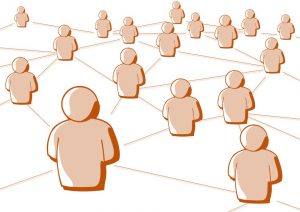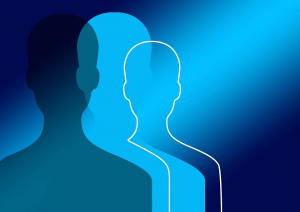Why Is the Internet So Mean?
YouTube comments: The most cogent written argument for why you should never learn how to read. — John Oliver
 Have you ever wondered why it nearly takes a hazmat suit and CDC clearance to wade into the comments section on a YouTube video? Although you may not expect something like a cat video to trigger the worst in people, comments on YouTube “regularly house inflammatory speech rarely encountered in daily life” (Puryear & Vandello, 2019; p., 895).
Have you ever wondered why it nearly takes a hazmat suit and CDC clearance to wade into the comments section on a YouTube video? Although you may not expect something like a cat video to trigger the worst in people, comments on YouTube “regularly house inflammatory speech rarely encountered in daily life” (Puryear & Vandello, 2019; p., 895).
But, it’s not just YouTube where these mean and hateful statements emerge; all across the online world, people say some truly nasty stuff.
So why does this happen?
ARE THEY ALL TROLLS?
For many of the nastiest comments on the Internet, we can thank the “trolls” who intentionally express vulgar statements to goad emotional reactions from others.
But, for many of the mean comments you read online, they come from everyday, “normal” people. The question, then, is why these typically upright citizens revert into something much more ugly and unappealing…

First – and maybe most obvious to you – is the anonymity afforded by the Internet. When we can’t be held responsible for our actions, we tend to act more unethically. For example, children wearing masks on Halloween (vs. children wearing costumes with their faces exposed) are more likely to steal candy from a communal bowl.
Online, then, where people can hide behind their username, they never have to worry about being blamed for their bad behavior.
Similarly important, though, when we read nasty comments online, those made anonymously (vs. those made by a named individual) don’t seem as hurtful. That is, when a mean comment is made anonymously, we’re less likely to attribute intended malice to the remark. When a comment is made by a named individual, however, we interpret the remark as especially offensive.
OUR EXPECTATIONS FOR THE INTERNET
The second reason that people are meaner on the Internet is because we expect people to be meaner on the Internet. In other words, there is a general norm that people will be meaner online than they will be in person.

In this study, they found that participants were much more surprised when the hurtful statement was delivered in person (vs. online). Or in other words, people expect hurtful statements online and therefore they aren’t as surprised by them. Importantly, though, the more surprised one is by a hurtful comment, the more hurtful that comment ends up being.
Thus, because people expect the Internet to be full of toxic communication, they feel more comfortable sharing it there.
THE OTHER PERSON BEHIND THE SCREEN
Beyond these two reasons, the third factor in the Internet’s meanness is the disconnect between the insulter and the insulted.
That is, when you say a mean comment to someone in person, you get immediate feedback about how it hurt them. When you say the same comment to someone online, you don’t see their reaction and thus don’t realize how hurtful it really was.

In sum, then, it becomes clear why online contexts are such a breeding ground for hateful comments: (1) anonymity promotes unethical behavior, (2) people think it’s “normal” for mean comments to be said online, and (3) people think online comments are less hurtful to people.
So, what can you do about? (see today’s psych•o•philosophy section for some thoughts on this)
Online Positively,
jdt
Everyday Psychology: Although it may seem impossible to try to change anything on the Internet, like any kind of grand scale improvement, it begins with one person at a time. Thus, the first thing to do is to try to recognize that statements made online can be just as hurtful as those made in person. By recognizing the true emotional impact that these remarks can have — and educating others about it — people may better understand the consequences of their actions. Additionally, trying to influence norms in different online channels can also be another route to take. For example, noting that the majority of comments are actually positive or benign can help others realize that meanness on the Internet is not actually normal — most people are upstanding individuals. Finally, staying away from completely anonymous sites like 4Chan is a way to reduce your own exposure to hateful statements. Plus, the fewer people going to those sites, the lower their influence in the future.
Gibb, Z. G., & Devereux, P. G. (2016). Missing link: Exploring repetition and intentionality of distress in cyberbullying behaviors within a college population. Translational Issues in Psychological Science, 2(3), 313.
Puryear, C., & Vandello, J. A. (2019). Inflammatory Comments Elicit Less Outrage When Made in Anonymous Online Contexts. Social Psychological and Personality Science, 10(7), 895-902.








Hey,
Do you mind if we republish this on our blog and link back to your original piece here with full credit?
Please let me know.
Thanks! 🙂
Hi Mansi, You would definitely be welcome to republish this blog with a link back to the original piece. Thank you for asking!! 😀
Curious how this relates to txt messaging- is that considered “online”? Functionally seems the same
You know, that’s a really great question… Without having any data to support these claims, I would suspect two things. First, because texting is typically non-anonymous, that identification should reduce the meanness of texts. However, because the communication is nonetheless digitally mediated, I would imagine that people anticipate it will have less of an effect on its recipient’s emotions. For example, we’ve all sent texts that were received with much greater offense than we expected.
All that said, I think you’re asking a really great question that someone should follow up on with some research! 😉